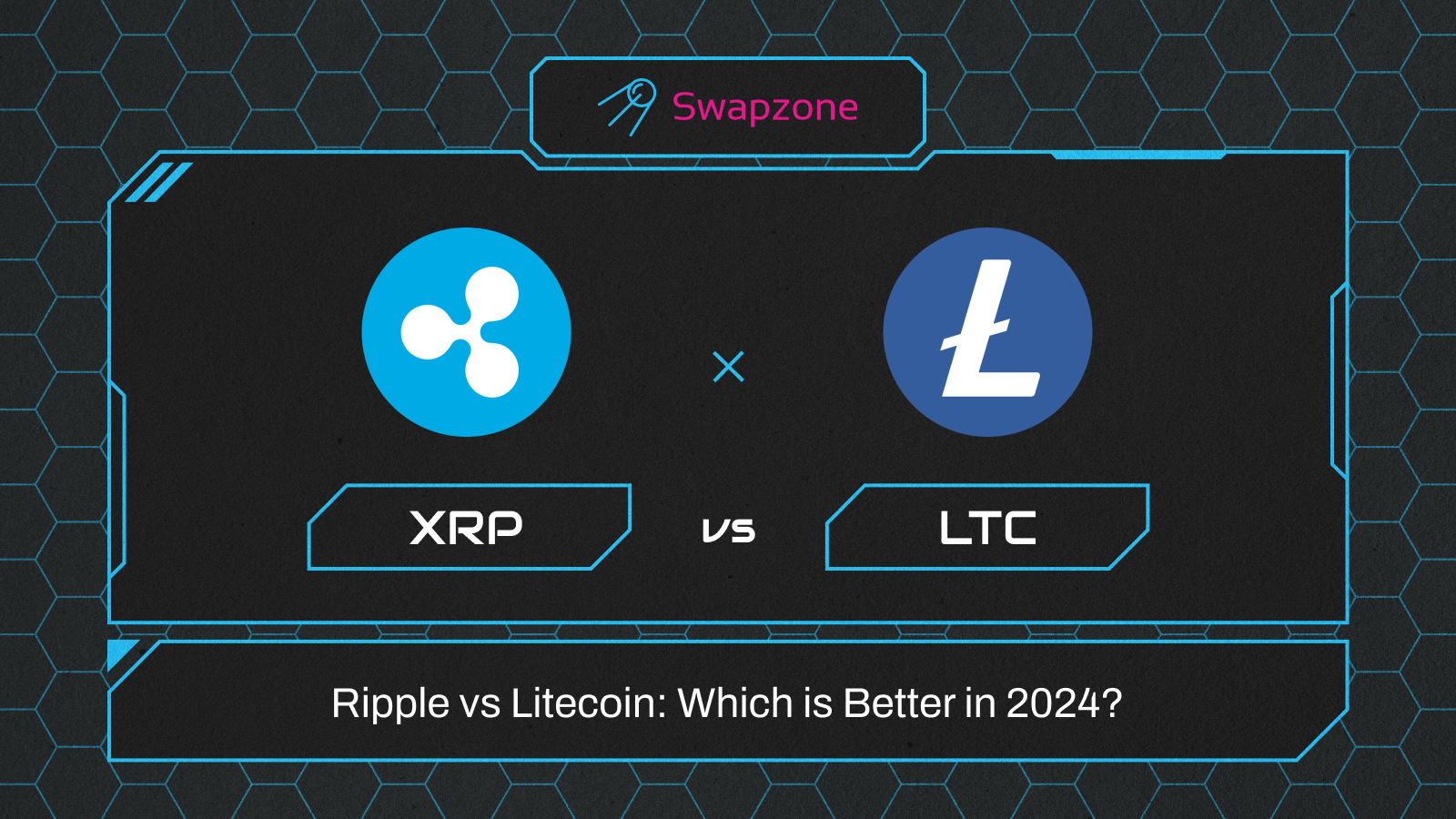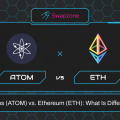In this article, we delve into a comparative analysis of Ripple and Litecoin, two prominent cryptocurrencies in the digital landscape. Ripple and Litecoin differ significantly in their functionalities, technologies, and market presence. Understanding these distinctions is crucial for investors and enthusiasts alike seeking insights into the dynamic cryptocurrency market.
Ripple vs Litecoin Comparison Table
Here’s a comparison table between Ripple and Litecoin. This table provides a systematic comparison of various aspects of Ripple and Litecoin, covering various Aspects:
| Aspect | Ripple | Litecoin |
| Establishment Year | 2012 | 2011 |
| Primary Usage | Facilitating real-time, cross-border payments and remittances | Peer-to-peer transactions; digital currency for everyday transactions |
| Target Users | Financial institutions, banks, payment providers | General public, merchants, individuals |
| Cryptocurrency Ranking | Varies; often in the top 10 | Varies; often in the top 10 |
| Functions | Efficient cross-border transactions, decentralized financial services | Fast and low-cost transactions, digital payments, store of value |
| Processing | High-speed transactions facilitated through consensus mechanism | Quick transaction processing via Proof-of-Work consensus |
| Maintenance | Requires less maintenance due to its consensus mechanism | Requires ongoing maintenance and updates |
| Growth Potential | High potential for growth due to partnerships with financial institutions | Potential for growth, especially as adoption increases |
| Founders | Chris Larsen, Jed McCaleb | Charlie Lee |
| Market Cap | Varies; typically high | Varies; typically lower than Ripple |
| Mining | Not mineable; all XRP tokens were pre-mined | Mineable using Proof-of-Work algorithm |
| Ceiling Amount | 100 billion XRP | 84 million LTC |
| Transaction Time | Averages a few seconds | Averages 2.5 minutes |
| Hashing Algorithm | Ripple Protocol Consensus Algorithm | Scrypt |
| Transaction Method | Direct transfer of assets; no traditional blockchain mining involved | Peer-to-peer transactions facilitated through blockchain mining |
Difference Between Ripple vs Litecoin
Ripple and Litecoin diverge significantly in their core purposes, technology, and founders. Ripple primarily focuses on facilitating online payments and streamlining offshore transactions for financial institutions through its efficient cross-border payment network. Litecoin operates as an open-source cryptocurrency supporting peer-to-peer transactions and serving as a digital currency for everyday use.
- Founders:
- Ripple was co-founded by Chris Larsen and Jed McCaleb.
- Litecoin was created by Charlie Lee.
- Cryptocurrency rankings:
- Rankings vary based on factors like market capitalization and adoption rates.
- Technical aspects:
- Ripple employs its own consensus algorithm.
- Litecoin uses the Scrypt algorithm for mining.
- Ripple’s processing and maintenance requirements are typically lower due to its consensus mechanism.
- Litecoin requires ongoing maintenance and updates as an open-source system with multiple functions.
These differences highlight the contrasting objectives and operational dynamics between Ripple and Litecoin in the realm of digital currencies and online transactions.

Litecoin: The Speedy Contender
Litecoin (LTC), a prominent cryptocurrency, emerged as a solution to bridge gaps in BTC’s transaction speed and scalability. Litecoin operates on a Proof-of-Work consensus mechanism like Bitcoin. That boasts faster transaction speeds and lower fees. This speed makes it particularly attractive for online casinos and gambling sites. However, similar to Bitcoin, Litecoin’s reliant on mining.
Ripple: Beyond the Hype
Ripple (XRP), renowned for its role in facilitating cross-border payments, operates on a decentralized, peer-to-peer network. Unlike many cryptocurrencies, Ripple is not entirely open-source. However, it permits users to extend credit to other community members. This feature sets it apart and enhances its utility in facilitating international transactions.
Notably, Ripple’s efficiency has led to its adoption by crypto gambling sites, where swift cross-border payments are essential. Its advantages over traditional payment methods, such as faster transaction speeds and lower fees.

Transaction Speed and Costs
When comparing transaction speed and costs between Litecoin and Ripple gambling sites, Ripple exhibits notable advantages. Ripple’s network can handle a higher volume of transactions per second compared to Litecoin. That is more efficient for processing numerous transactions simultaneously. Additionally, Ripple generally imposes lower transaction fees compared to Litecoin, reducing costs for users and businesses engaged in online gambling activities.
These factors contribute to Ripple gambling sites seeking swift and cost-effective payment solutions. Ripple’s scalability and lower fees position it as a favorable choice for online gambling platforms aiming to optimize transaction processing and minimize operational costs. Whereas Litecoin still offers relatively fast transaction speeds compared to traditional payment methods.
Innovation and Technology
In terms of innovation and technology, Litecoin relies on a Proof-of-Work consensus mechanism. Similar to Bitcoin, mining validates transactions through cryptographic puzzles. Conversely, Ripple operates on the Ripple Protocol Consensus Algorithm (RPCA), employing the Federated Byzantine Agreement to achieve consensus among network validators.
While Litecoin has explored solutions like the Lightning Network to enhance scalability and transaction speeds, it faces challenges associated with network congestion and fees. In contrast, Ripple’s architecture inherently prioritizes scalability and efficiency, allowing for high throughput and swift transaction settlement.
Adoption in the Gambling Industry
In the gambling industry, Ripple and Litecoin have seen varying levels of adoption. Ripple focuses on facilitating cross-border transactions. Thus, it has gained traction among the gambling industry requiring swift international payments. Its efficient network is well-suited for handling high volumes of transactions seamlessly.
Conversely, Litecoin’s adoption in the gambling sector tends to cater more towards peer-to-peer international transactions and daily transactions, albeit at a slightly lower scale compared to Ripple. However, both cryptocurrencies are recognized in crypto ratings for their utility in facilitating transactions within the gambling industry. Each offers unique advantages depending on the specifics of the use case.
Security and Trustworthiness
When it comes to security and trustworthiness, both Litecoin and Ripple employ robust measures to safeguard transactions. Litecoin’s Proof-of-Work consensus algorithm, Scrypt, ensures the integrity of the blockchain by requiring miners to solve complex cryptographic puzzles.
Additionally, the Lightning Network enhances transaction security by facilitating off-chain transactions and reducing congestion on the main blockchain. Ripple utilizes cryptographic signatures and the Ripple Protocol Consensus Algorithm (RPCA) to prevent unauthorized transactions and spoofing attacks.
This decentralized approach, coupled with tamper-resistant features, bolsters confidence in Ripple’s network. Overall, both cryptocurrencies prioritize security and trustworthiness, albeit through different mechanisms tailored to their respective consensus algorithms and transaction processing architectures.
Should You Invest In Ripple Coin Or Litecoin?
When considering whether to invest in Ripple (XRP) or Litecoin (LTC), several pros and cons should be considered. Ripple’s focus on cross-border transactions and partnerships with financial institutions offers growth potential, yet regulatory concerns exist. Conversely, Litecoin’s lower fees and faster speeds suit peer-to-peer transactions, but its reliance on Proof-of-Work mining and scalability issues present long-term challenges.
Conclusion
In conclusion, the comparison between Ripple and Litecoin highlights their divergent objectives. Ripple prioritizes efficient cross-border payments for financial institutions, while Litecoin focuses on peer-to-peer transactions for everyday use. Despite both cryptocurrencies ranking highly and serving distinct functions, differences in consensus mechanisms, maintenance requirements, and growth potential are evident. When considering investment decisions, it’s crucial to weigh factors such as regulatory concerns, technological advancements, and long-term objectives related to Ripple and Litecoin.
FAQs
Ripple (XRP) operates as both a cryptocurrency and a digital payment protocol designed for facilitating fast and low-cost cross-border transactions. Unlike Bitcoin and Litecoin, Ripple focuses on serving financial institutions and banks, offering faster transaction speeds and lower fees for international transfers.
Ripple’s legal situation, particularly concerning its ongoing lawsuit with the U.S. Securities and Exchange Commission (SEC) regarding the classification of XRP as a security, could significantly impact prospective investors. Uncertainty regarding regulatory compliance and potential repercussions may influence investor confidence, affecting XRP’s price and adoption in the cryptocurrency market.
For secure storage of Ripple (XRP) and Litecoin (LTC), hardware wallets such as Ledger Nano S or Trezor offer robust protection against hacking and unauthorized access. Alternatively, reputable cryptocurrency wallets like Exodus and Atomic Wallet provide secure software-based solutions with features like encryption and multi-factor authentication for added security.

